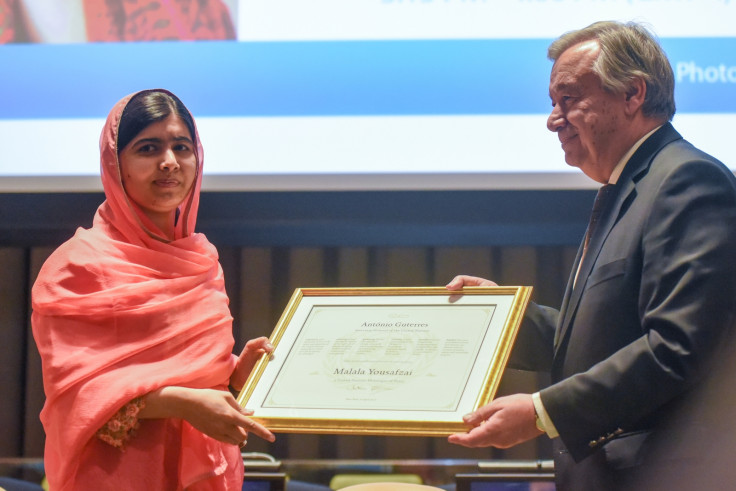Malala Yousafzai becomes youngest UN Messenger of Peace, to focus on girls' right to education
The 19-year-old Nobel laureate was shot by the Taliban in 2012.

The United Nations on Monday (10 April) made Nobel laureate Malala Yousafzai the youngest-ever UN Messenger of Peace.
With this, Malala also became the first person to be so designated by Secretary-General Antonio Guterres since he assumed office in January. The 19-year-old, who was shot by a Taliban gunman in the head for attending school in 2012, will take the role with a special focus on girls' education.
Guterres said in her honour: "You have been to the most difficult places [...] visited several refugee camps. Your foundation has schools in Lebanon, in the Beka'a Valley.
"[You are a] symbol of perhaps the most important thing in the world, education for all."
Accepting the honour, Malala, said: "If you want to see your future bright, you have to start working now [and] not wait for anyone else."
The ceremony in the Trusteeship Council chamber at UN Headquarters, New York, followed a conversation session with youth representatives from around the world on the subject of girls' education.
Malala talked about her most difficult times and said her toughest struggle was between 2007 and 2009 when she was living in the Swat valley in her native Pakistan and was not sure whether to speak about girls' education or remain silent.
"And I realized that if you remain silent, you are still going to be terrorised. So speaking out, you can help people," she added and urged men of the families to support women and their rights.
In March, Malala also received an offer to study politics, philosophy and economics at a UK university, on condition of achieving three As in her A-levels. However, she did not confirm which university has made the offer.
A campaigner for the rights of oppressed children in the Swat valley, Malala was nearly killed after her school bus was ambushed by the Taliban in 2012.
The deadly attack on the young girl sparked international outrage, and she was transferred from a hospital in Pakistan to Birmingham's Queen Elizabeth Hospital for life-saving treatment.
Malala and her family have since made Birmingham their home.
© Copyright IBTimes 2025. All rights reserved.





















